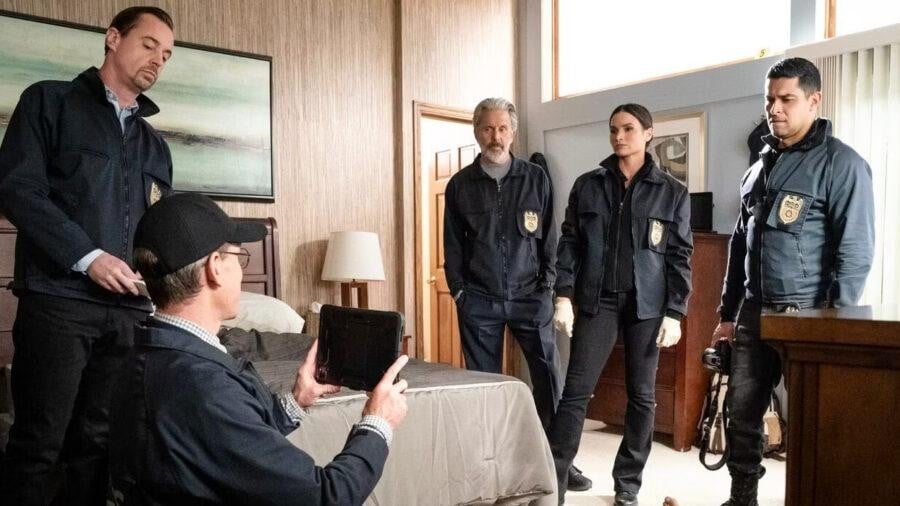2025.02.22 05:29 Taipei time

Release time:2025.02.22 05:29 Taipei time
Update time:2025.02.22 05:29 Taipei time
In Uttar Pradesh, India, a 27-year-old wife died mysteriously. Her husband claimed that she committed suicide, but her 4-year-old daughter accused her father of the murderer, and even used a young brush to describe the incident. The police are investigating the murder direction.
According to New Delhi TV, the horrifying incident occurred in Zhanxi, Uttar Pradesh, India. The 27-year-old wife Sonali Budholia was originally claimed to have committed suicide by her in-laws, but her 4-year-old daughter Darshita made a completely different statement, claiming that her father Sandeep Budholia He beat his mother to death, and kept shouting during the process: “If you want to die, go to die!” After his death, the body was even hung up, and his father smashed his head with a stone to vent his anger, and finally put the body in a bag.
The girl drew the scenes of the crime and revealed the horrifying details of the attack to the reporters. The girl also accused her father of frequent domestic violence against her mother and insulting her words such as “damn”. She also revealed that her father had threatened to kill her mother in the past, and she bravely resisted her father, threatening that “if you dare to touch my mother, I will beat her. Broken your hand!”
In addition, the father of the deceased revealed in an interview that when his daughter married her son-in-law, her son-in-law’s family did not meet the dowry of 2 million rupees (about NT$753,000). After marriage, she demanded more property after marriage, but failed to successfully seek it out. When he got to the car, he began to abuse his daughter. Since the deceased gave birth to a daughter, the situation has become worse. Because the son-in-law has always wanted a son, when he found out that he had a daughter, he left his wife in the hospital without paying attention. He was not willing to call her a month later. go home.
The case is full of doubts. The police suspected that the case was not simple and had begun an in-depth investigation. The local police chief said the family of the deceased insisted that the daughter would be subjected to an autopsy before her son-in-law was arrested. The deceased husband is currently listed as the main suspect and has been arrested by the police.
★ “Mirror Weekly” cares about you: If you or others suffer physical abuse, mental abuse, sexual assault, or sexual harassment, please call 110 immediately to report the case, and then seek the 113 dedicated line to seek help from professional social workers.
★ “Mirror Weekly” cares about you: Give yourself another chance/Suicide consultation line: 1925 (24 hours)/Lifeline: 1995/Teacher Zhang’s special line: 1980
Update time|2025.02.22 05:29 Taipei time
Further reading
More content, welcome Mirror Weekly Paper Magazine、Mirror Weekly Digital Subscription、Understand content authorization information。
Free online reading of dynamic magazines for monthly and annual fees for members
What are the most effective ways to provide support and resources to children who have witnessed domestic violence?
Table of Contents
- 1. What are the most effective ways to provide support and resources to children who have witnessed domestic violence?
- 2. Unraveling Domestic Violence: A Conversation with dr. Meena Patel, Child Psychologist & Domestic Violence Expert
- 3. 1. Dr. Patel, thank you for joining us today. Can you tell our readers a bit about yourself and your work?
- 4. 2. Let’s dive into the horrifying case of Sonali budholia in Uttar Pradesh, India, where her 4-year-old daughter, Darshita, accused her father of murder. Can you shed some light on the psychological impact this must have had on Darshita?
- 5. 3. The little girl bravely resisted her father’s threats, even stating, “If you dare to touch my mother, I will beat you. Break your hand!” How can we understand such resilience in young children like Darshita?
- 6. 4. We’ve heard reports that dowry disputes may have played a role in this case. How often do economic factors contribute to domestic violence, and what can societies do to address this?
- 7. 5. If there’s one thing you’d like our readers to take away from this tragic case, what would it be?
- 8. 6. Lastly, what advice would you give to readers who suspect someone they know might be a victim of domestic violence?
Interview Title: Unraveling Domestic Violence: A Conversation with Dr. Meena Patel, Child Psychologist & Domestic Violence Expert
Interviewer: [You, acting as a professional journalist from Archyde]
Dr. Meena Patel is a renowned child psychologist who has been following the tragic case of Sonali Budholia, the Indian woman suspected of being killed by her husband. Dr. Patel has expertise in domestic violence and its impact on children.
Unraveling Domestic Violence: A Conversation with dr. Meena Patel, Child Psychologist & Domestic Violence Expert
1. Dr. Patel, thank you for joining us today. Can you tell our readers a bit about yourself and your work?
Dr. Meena Patel: Thank you for having me. I’m a child psychologist with over two decades of experience, specializing in the effects of domestic violence on children. I’ve worked closely with various NGOs and shelters, providing counseling and support to countless young victims and their families.
2. Let’s dive into the horrifying case of Sonali budholia in Uttar Pradesh, India, where her 4-year-old daughter, Darshita, accused her father of murder. Can you shed some light on the psychological impact this must have had on Darshita?
Dr. Patel: This case highlights the devastating psychological consequences of domestic violence on children. Darshita, being an eyewitness to her mother’s alleged murder, is likely suffering from severe emotional trauma. She may be experiencing a mix of feelings like fear,anger,grief,and confusion. Her drawings are a coping mechanism – a way for her to process the horrifying event.
3. The little girl bravely resisted her father’s threats, even stating, “If you dare to touch my mother, I will beat you. Break your hand!” How can we understand such resilience in young children like Darshita?
Dr.Patel: Darshita’s resilience is actually quite common among children in such situations. It’s their way of trying to protect their mother and maintain a semblance of normalcy. However, this doesn’t diminish the severity of her trauma. In fact, such resilience can sometimes mask the deep emotional wounds she’s carrying.
4. We’ve heard reports that dowry disputes may have played a role in this case. How often do economic factors contribute to domestic violence, and what can societies do to address this?
Dr.Patel: Dowry-related violence is a meaningful issue in India and many other parts of the world. It’s essentially an extension of gender and power dynamics. To address this, we need robust laws, stringent enforcement, and a change in societal attitudes. Education and awareness campaigns targeting both men and women are crucial in combating such issues.
5. If there’s one thing you’d like our readers to take away from this tragic case, what would it be?
Dr.Patel: I’d like them to understand the urgent need for support services and safe spaces for victims of domestic violence, especially for children. We must break the cycle of violence and give these young victims the chance to lead lives unburdened by trauma. let’s also remember that behind every shocking statistic is a real-life tragedy, like Sonali’s and Darshita’s.
6. Lastly, what advice would you give to readers who suspect someone they know might be a victim of domestic violence?
Dr. Patel: Trust your instincts. If something seems amiss, it probably is. Encourage the person to seek help, and offer your support. Remind them that they’re not alone, and there are safe spaces and resources available. Most importantly, respect their pace and decisions.


